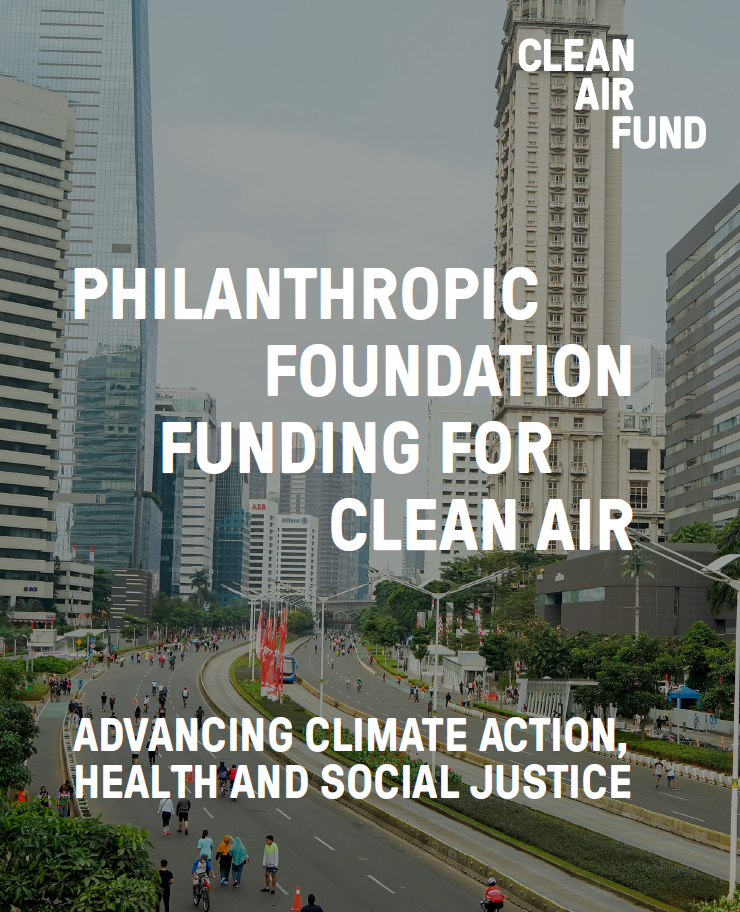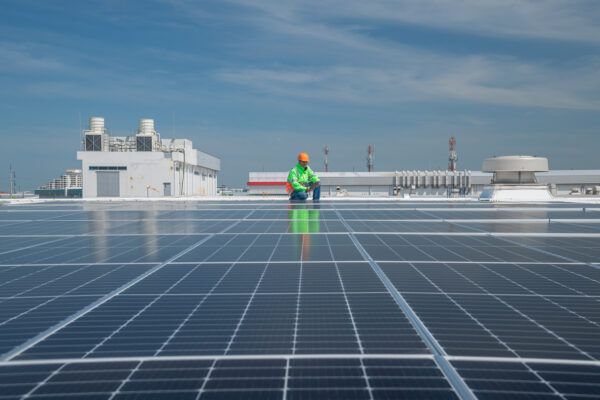You’ve probably heard the saying, “If you want to go fast, go alone; if you want to go far, go together.” Philanthropic foundations are increasingly co-funding with other donors to increase the scale, reach and impact of their investments.
Co-funding is a way to go further together. By aligning with other funders’ strategies, philanthropies can harness wider expertise and networks. They can be part of a consortium to tackle complex problems or scale successful initiatives. They can also fill funding gaps and support a proof of concept to catalyse additional resources. Collaboration, pooling resources and aligning efforts are essential to addressing shared goals.
Air pollution is a systemic problem that intersects with poor health, climate change, economy and social inequity. At the Clean Air Fund, we embrace co-funding opportunities by partnering with other funders to achieve multiple goals. Each project has unique motivations, funding sources and partnership ratios. Here are some examples of co-funded projects and why we chose this approach.
1. Strategic alignment: Zero Waste Accra
In partnership with the Global Methane Hub, we’re funding a sustainable waste management model in Accra, Ghana. This two-year project aims to demonstrate a zero-waste model that can be scaled to other African cities with a focus on eliminating open waste burning, recycling and promoting organic waste composting.
Only 70% of the over 3,000 tonnes of municipal solid waste daily is officially collected, treated, recycled and disposed of in Accra. The rest is burned or dumped out in the open. Waste burning is one of the main sources of air pollution in Ghana, while decomposing organic waste in landfills is a major source of methane. The Clean Air Fund’s and Global Methane Hub’s strategies aligned for this innovative project. We were both interested in supporting informal waste collectors, employment opportunities for women and improved stakeholder engagement with communities.
Led by the Green Africa Youth Organization, the project will support communities living and working in informal settlements to collect data and engage in campaigning for cleaner alternatives to open waste burning. Other activities include mapping open waste burning, setting up waste buying centres and improving coordination between the formal and informal waste sectors. A materials recovery facility will be set up to serve 1,200 waste pickers and process tonnes of waste per day.
2. More than the sum of its parts: Accelerator for Clean Air Actions
In collaboration with Bloomberg Philanthropies and Open Philanthropy, we’re supporting the Accelerator for Clean Air Actions (ACAAS), a programme implemented by World Resources Institute. This programme provides technical support to 10 cities in India to improve their air quality management.
The accelerator is enabling cities to build local capacity, use data to inform solutions, while creating a peer platform to exchange learning and best practices, and improve coordination among the various agencies engaged in air quality action. The ten cities will also be supported by changemakers from government, young professionals and community organisations to identify and scale up innovative pilot projects to shape long-term policy change. Clean Air Fund supports two of the 10 cities: Agra and Gorakhpur. Our funding is contributing to a larger initiative that will have greater impact in the cities and the wider ecosystem through coordinated efforts and galvanising other cities.
3. Scaling successful action: Healthy Air Coalition
Together with Impact on Urban Health (IoUH), we fund the UK’s largest clean air coalition. The Healthy Air Coalition comprises over 30 organisations from the health, environment and transport sectors. The coalition pools expertise, combines policy thinking and provides a united voice to call for clean air action.
The Healthy Air Coalition was established by ClientEarth in 2013 to coordinate action on clean air. Clean Air Fund and IoUH’s funding supported the establishment of a coalition secretariat hosted by Asthma + Lung UK to reorganise the coalition’s structure and streamline its work. This included developing a strategy and coordinating action across policy engagement, data analysis and communications. Over the past two years, the coalition has successfully advocated for policy and government commitments, including influencing the Labour Party to re-affirm its commitment to a Clean Air Act prior to the recent general election. They also opposed a Private Members Bill to halt London’s ultra-low emission zone under the previous government.
Through supporting the expansion of their effective framework for collaboration and support, we as philanthropic funders are maximising our advocacy efforts, building on existing successful action and contributing to real policy change for clean air in the UK.
4. Funding a proof of concept: SPARTAN
In partnership with NASA and the National Science Foundation (NSF), we co-fund SPARTAN, a network of local monitoring stations that build a global picture of air pollution. From Mexico City to Melbourne, these ground-based monitoring stations capture high-quality air quality data in real-time.
SPARTAN combines this ground-level data with information from satellites in space. This way, it gives us a complete picture of air pollution levels and helps scientists and policymakers see how pollution is affecting our health and environment.
All the data is openly available, so anyone can use it to learn more about air quality and work towards cleaner air. For instance, in urban areas where pollution sources are varied and complex, SPARTAN’s data helps identify specific pollutants and their sources, enabling targeted actions to reduce harmful emissions.
Clean Air Fund has supported SPARTAN since 2022, and the initiative has recently seen additional funding commitments from the National Oceanic and Atmospheric Administration and renewed support from NASA. Innovation requires boldness and risk. By co-funding this proof-of-concept, we were able to spread the risk for a novel concept that has developed into a cutting-edge tool for clean air action.
How can philanthropic funders do more together?
More philanthropic funders should embrace co-funding partnerships to maximise impact. By aligning strategies, pooling resources, building on proven successes and intentionally opening a space for other funders to join, we can achieve far more together than alone.
Each funder brings unique expertise, networks and influence to the table. When combined with collaboration, these strengths can unlock transformative benefits for combatting global air pollution through addressing climate change, public health, and social justice. Check out our recommendations for philanthropic foundations.
SEE MORE

